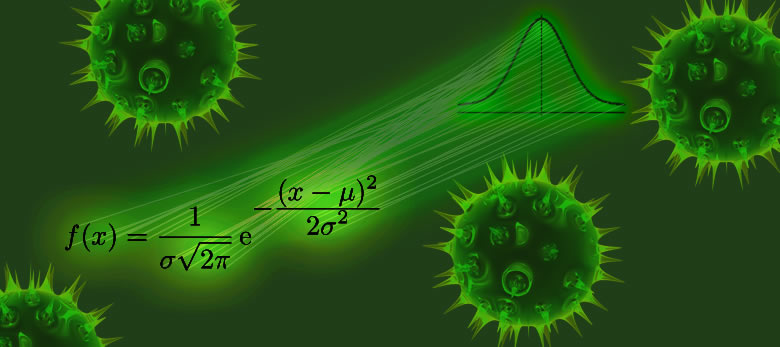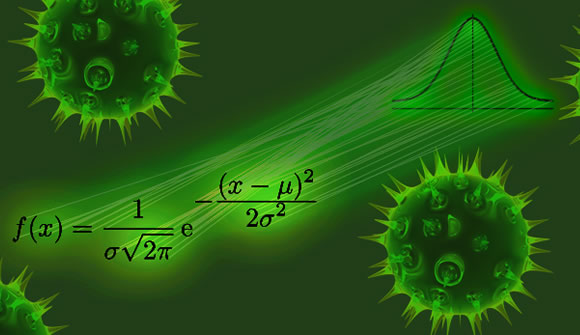Biology
Fribourg profile
The Department of Biology offers a PhD curriculum in Biology. This programme is fully given in English and comprises a personal research project to be taken over 3-4 years. It also includes seminars and lectures according to the bylaws of the Fribourg Graduate School of Life Sciences (FGLS).
The biology laboratories at the University of Fribourg investigate three main areas of research:
Ecology and Evolution
This research area investigates organismic biology with a special focus on ecology and evolution. Current research interests include food web structure, conservation biology, invasive species, agro-ecology, host-parasite interactions, life-history evolution, inbreeding depression, evolution in fragmented habitats, and population genetics. The organisms investigated are whole food webs, fruit flies (Drosophila melanogaster), water fleas (Daphnia), horse chestnut leaf miner (Cameraria), as well as plants: spotted knapweed (Centaurea stoebe), groundsel (Senecio), false hellebore (Veratrum), dock (Rumex), and their natural enemies.
Neuro- and Developmental Biology
The laboratories investigate the mechanisms that govern animal development in the following model systems: The fruit fly Drosophila melanogaster, the nematode Caenorhabditis elegans, the zebra fish Danio rerio and the mouse. Research topics include molecular aspects of regeneration, cell differentiation in somatic and germ line tissues, neuronal outgrowth and connectivity, behaviour, chemoreceptors, and aging. The tools employed are molecular genetics, molecular biology, protein analysis, microscopy and imaging, behavioural analysis and many more.
Plant Biology
This area emphasizes the cellular and molecular aspects of pathogenic and symbiotic plant-microbe interactions. The research groups focus on aspects ranging from the recognition of microbes by the plants, initiation of defences, metabolic and hormonal adjustments, and interference of the microbe with the host defences. Current tools comprise molecular biology, reverse genetics, imaging, analytics, and biochemistry. The training both in practical and theoretical areas will prepare the PhD students for the challenge of the professional world.
PhD students learn how to conduct a research project in an independent manner. They will also learn how to interpret scientific data and to present them. Furthermore, students are expected to be able to think independently about their research topic, to trouble-check their experiments, evaluate their data and put them into a general context, and of course to work in a team. PhD students participate at national and international scientific meetings in order to broaden their knowledge and to establish a scientific and social network.
PhD students in the Department of Biology are remunerated according to standards of the Faculty of Science and Medicine.
To register to the doctoral programme, candidates select a laboratory in which they plan to carry out their PhD (see Contact). They read the relevant publications and then contact the group leader to ask for a possible opening.
Alternatively, candidates look for openings that are posted by the FGLS. The selection procedure is carried out twice a year. It comprises a 15-minute oral presentation and discussions with the various group leaders.
A non-exhaustive list of laboratories includes:
- Prof. Simon Sprecher
– Development and specification of photoreceptor neurons in the larva
– Genetic control of sensory receptor gene expression switch during metamorphosis
– Dissecting of the neuronal circuit for vision in the Drosophila larva: identifying neurons and their synaptic connectivity
– Dissecting of the neuronal circuit for vision in the Drosophila larva: function of neurons in light-guided navigation and visual learning and memory formation
– Proliferation control of neural cells in development
– Neuroanatomy of an ant brain: insights into differences of a cast system
– Super resolution imaging to identify synaptic connections
– Systems biology of forgetting
- Prof. Anna Jazwinska
– Mechanisms of fin, heart and retina regeneration in zebrafish
- Prof. Louis-Félix Bersier
– Biodiversity and community structure
– Metacommunities
– Food webs
– Conservation
– Dynamics of multitrophic systems in mesocosms
– Modelling
- Prof. Heinz Müller-Schärer
– Ecological and evolutionary aspects of plant-antagonist interactions
– Plant invasion and range extension
– Biological control
- Prof. Felix Mauch
– Functional analysis of RxLR effectors in the interaction of the oomycete pathogen Phytophthora brassicae with Arabidopsis
– Molecular analysis of an Arabidopsis thaliana - Phytophthora pathosystem
– Signalling control of pathogen induced plant immunity
- Prof. Laure Weisskopf
– The role of volatile compounds in microbial interactions
– The impact of the microbiome on plant health
– New strategies for biological control of plant diseases
- Prof. Thomas Flatt
– Experimental evolutionary genetics in Drosophila
– Population genetics and genomics of adaptations
– Evolution of fitness components, life-history evolution
– Climate adaptation along clines / environmental gradients
– The role of chromosomal inversions in adaptation
– Evolution and mechanisms of aging and longevity
– Evolution and mechanisms of body size
– Mechanisms of life-history trade-offs
- Prof. Dominique Glauser
– Functional analysis of the Caenorhabditis elegans neural circuit
– Molecular and cellular mechanisms of pain
– Identification of evolutionarily conserved pain genes
– Transcriptomics in nociceptor neurons
– Caenorhabditis elegans phosphoproteome
Please refer to the internet link below for a complete an updated list (see Contact).
Studies organisation
Structure of studies
No ECTS credits can be earned.
Doctoral school
http://studies.unifr.ch/go/phd-fgls
Admission
In order to be admitted to a doctorate the candidate must have been awarded an academic Bachelor's and Master's degree or an equivalent qualification by a university recognised by the University of Fribourg.
Before applying for a doctorate the candidate must contact a professor who would be willing to supervise the thesis work.
There is no general right to be admitted to a doctorate.
The respective conditions of admission for each doctoral study programme are reserved.



